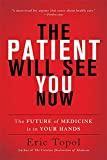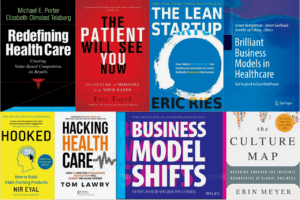As the end of the year and Christmas holidays are near, you might be having some extra time to sit back and relax and maybe explore new reading stuff.
I’ve selected 5 must-read books for health innovators.
These basic 5 will definitely inspire you and will become part of your basic work library. I still use these books almost weekly in my consultancy work for corporates. If you read these 5 healthcare business books , you will be packed with good ideas for your project the coming months and years. I hope you enjoy!
Note: If you want to keep all the suggestions with you (+3 new reading tips):
download our free report ‘must read books for health care innovators’
1. Redefining Health Care. Creating value-based competition on results. By Michael Porter and Elisabeth Teisberg (2006)

Harvard Professor strategy and economics Michael Porter published Redefining Health Care in 2006 and since, it really has become a cornerstone work for everyone in the health sector. It is seen as the foundation for the global trend towards value-based healthcare.

Based on the problems of the American healthcare system, Porter indicates that modern health systems need to be sustainable. Ageing and technological developments put huge burdens on the health system, which is highly cost-ineffective. The answer to high costs and needs is not more money or more people but is value-based healthcare (VBHC).
Focus on health outcomes and learn how this impacts you
Better outcomes are at the centre of VBHC and their goal is to enhance the quality of life of patients. Thus, not only medical results are important but the entire scope of the patient’s life at the highest cost-efficiency. Porter works out 6 action points for every actor in the health system to reach value-based health care. We call it the ‘strategic agenda’. When you are working on these 6 action points, you will need digital, you will cooperate with other stakeholders in the ecosystem, and prevention will be on top of your mind. But most of all: your business model will change and your long-term results will be better.
This is not an easy book to read: it’s probably not your favourite one while taking a bath, for example. But it does take you on a path of in-depth change in health care. It explains very thoroughly what every stakeholder in the business ecosystem can do to reach value-based health. And it’s packed with research data and examples.
Moreover, the enormous value of Redefining Health Care is in describing the opportunities of VBHC for each and every stakeholder in the ecosystem: health care professionals, corporates, government, (public) health insurers, startups, patients and hospitals all along.
2. The patient will see you now. The future of medicine is in your hands. By Eric Topol (2015)
Eric Topol is a cardiologist and one of the worlds best known digital health researchers. He is editor-in-chief of Medscape, the biggest online news and education platform for clinicians and he is the founder of Scripps, the translational medicine institute. As such, he was granted to lead a significant part of America’s Precision medicine initiative in 2016.
In the patient will see you now, he maps out a new era of democratized medicine. Individuals own access and are able to use data and play a principal role in their healthcare. Topol shares stories from his own practice and experience to illustrate how healthcare is working now, what kinds of data deliver new insights for patients and how this impacts the daily work of health professionals.
Topol knows how doctors think and act. He is one of them. He is familiar with medical rules and culture and helps readers to understand. Combine this with his enthusiasm for new technologies and health data and you’ll love learning about ‘my lab tests’, ‘my scans’, ‘my costs’ and ‘my smartphone doctor’. The patient will see you now is giving power to all individuals. The future of medicine is in your hands. And Eric Topol is a wonderful guide to inspire you in your work.
Download our free ‘5 must read books for health care innovators (+ 3 extra tips)’ report
3. The lean startup. By Eric Ries (2013)

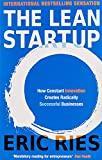
Entrepreneurship is all about vision, experiment and fast learning in a structured way
For those readers of dashplus that are not familiar with entrepreneurship and innovation: this is the bible of new entrepreneurship for many many startups worldwide.
The lean startup offers a way to start a new business or project and make it grow without having wasted years and having spent millions. The basic point of the lean startup is that entrepreneurship is not a question of ‘just do it’. There is a way that leads to considerable success: a feedback loop of hypothesis, testing, measurement and adaption-all within short time cycles and with small investments.
Ries describes his own entrepreneur’s journey and his lessons from many mistakes in a funny but very efficient way. Mixed with stories of several startup failures and successes, he shows you the way to move forward. I use a lot of Ries insights in the e-book ‘Basics to grow in health‘ too.
Although ‘the lean startup’ is focused on technology startups, also corporates and service entrepreneurs will definitely enjoy the book. It’s packed with practical experience and guidelines you can use in any project.
Since it’s first publication in 2013, the lean startup has become a worldwide movement. In 2017 Ries has published ‘the startup way’, on how to innovate lean, specifically for corporates.
4. Brilliant business models in healthcare. Get inspired to cure healthcare. By Jeroen Kemperman, Jeroen Geelhoed et al. (since 2017 available in English)
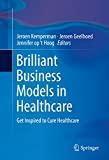
First published in Dutch and since 2017 also available in English, this book offers a massive insight into 20 pioneering health companies and projects worldwide. Each of them intervenes on a specific part of the healthcare business model. They fundamentally change either the value proposition of healthcare, its channels to deliver care, the price or the public they are working for.
Pioneer companies covered in the book are grouped around 5 breaktroughs :
- strenghten solidarity
- grow health prevention
- organise delivery of care
- empower customers and
- organise specialist healthcare
Each breakthrough is illustrated with 4 extensive business stories, explaining their business model and value.
Worldwide pioneers of
new and sustainable
business models in
health care
The book was first published in 2014 and some of the mentioned companies have changed again. But they show how these pioneers have answered many of the problems health innovators face worldwide. It covers companies like Laastari in Finland (organise delivery of care), Discovery in South-Afrika (prevention) and Shouldice in Canada (specialist care).
You get to know each of the 20 companies quite well, learning details about their vision, growth process and do’s and don’ts. Sometimes I use these examples during lectures or in workshops. You can read one story at a time, and the book ends with shared lessons from all discussed breakthroughs.
5. Hooked. How to build habit-forming products. By Nir Eyal (2014)

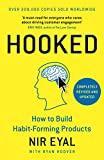
habits to build more successful products and services
Nir Eyal’s book is a guide into the mind of us all and how companies (can) use our psychology to create habits that make us buy more. Products and services can be designed in such a way that it is a pleasure to use them and that they create habits. As we all know, this is especially the case with digital products: on the average, people check their mobile phone more than 34 times a day. How is this possible? What does it need for a product or service to create a habit? And what can you do with that knowledge? This is what Eyal explains in Hooked.
The book makes you think about your own behaviours and habits-be aware of them. And more important: the 4 steps of a hook are also very useful to create new health care products. Whether technology or service, if your product is successfully designed to become a habit, it impacts compliance, education and health outcomes. But not all products can or should be hooks.
This book is not a plea to make customers addicted to your product or service. It shows you a habit-mechanism and how you can build this into your work-when necessary. Hooked is linked to the health nudges concept and their value in prevention.


